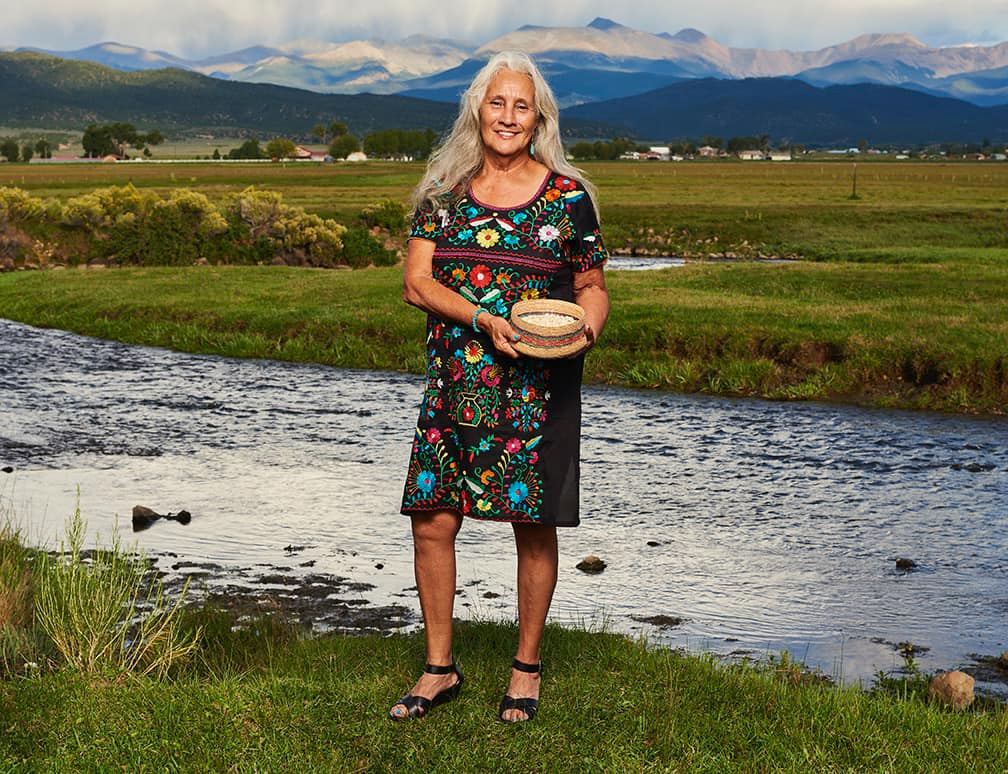For more information about the Co-Op, please contact Shirley Romero whose contact information will be made available soon. Until then please visit our new web site at SanLuisPeoplesMarket.org.
Co-Op Information

Dear Local Community and Residents,
We are excited to share some important news with you about the San Luis Peoples Market, your beloved local grocery store. As the new year gets underway, we are proud to announce that the store will become a cooperative, owned and operated by members of the community.
As a cooperative, the San Luis Peoples Market will be dedicated to providing high-quality products and services to its members while supporting the local community. Members of the cooperative will have the opportunity to actively participate in the decision-making process of the store, including voting on important issues and electing our Board of Directors. Members will also have access to a wide variety of high-quality products, including fresh produce, dairy, meats, and specialty items.
We believe that the cooperative model is the best way to ensure that the San Luis Peoples Market continues to serve the community and meet its needs in the years to come. By becoming a member of the cooperative, you will not only enjoy the benefits of membership, but also have a say in the future of the store and help to promote sustainable and ethical practices in the food industry.
We are proud to be a part of this community and look forward to working with you to build a stronger, more sustainable local economy. If you have any questions or would like to learn more about the cooperative, please don't hesitate to contact us. Thank you for your continued support of the San Luis Peoples Market.
Co-Operative FAQs
1. What is a Co-Op?
A Co-Operative is an autonomous association of persons united voluntarily to meet their common economic, social, and cultural needs and aspirations through a jointly-owned and democratically controlled enterprise.” In other words, cooperatives are created by people who have a specific need and who are willing to work together to operate and organize a company that will meet that need.
2. How does a cooperative work?
A food co-op operates differently from a typical grocery store. For one thing, it's likely that the people who are members of the cooperative, or part-owners of the co-op, are also working at the co-op, stocking the shelves and ringing customers up at the register. Some cooperatives limit who can shop there or use their services. In some cases, only members of a cooperative can shop at it. Some cooperatives are open to all, but provide special incentives to members, such as a discount on products or services. Why are people who are members of a food co-op willing to volunteer or donate their time to work at the co-op? In part because of the community focus of a cooperative and the values behind co-ops. Among those values are:
- Democracy
- Self-help
- Self-responsibility
- Equity
- Solidarity
People who join cooperatives or who are among the founding members of a co-op often have the same shared values, meaning they are willing to work together towards a common goal. One of those goals is to create a better world by working together and by shifting the focus of the business to place people over profit to build a more inclusive economy.
3. Who owns and controls a Co-Op?
The people who benefit from the products or services of a cooperative business own the cooperative business. In the case of a grocery co-op, the people who shop at the store are owner-members. Just as the stockholders or shareholders of a business have a say in the ownership and operations of a company, the member-owners of a co-op have a say in how the cooperative operates. As equity and equality are among the founding principles of a cooperative, each member-owner of a co-op gets one vote. The opinion of one co-op member does not have more weight than the opinion of another co-op member. Cooperatives often elect a board of directors. The responsibilities of the co-op board include ensuring that the cooperative is working towards achieving its mission, setting up operational policies for the co-op and hiring any outside managers or other employees.
These are just a few of the common FAQs about cooperatives. For more information please visit the National Cooperative Business Association CLUSA International (NCBA CLUSA) at https://ncbaclussa.coop.
Typical Member Benefits
There are various types of member benefits and programs offered by cooperatives. Here are some common examples:
- Dividends: As mentioned earlier, some cooperatives offer a percentage of purchases back to members in the form of dividends.
- Discounts: Cooperatives may offer discounts on products and services for members, which can help members save money on their purchases.
- Loyalty programs: Some cooperatives offer loyalty programs that reward members for their continued patronage. This could include discounts, free products, or other perks.
- Voting rights: Members of cooperatives typically have a say in the decision-making process of the organization. This can include voting on key policies, electing board members, and more.
- Education and training: Many cooperatives offer educational and training programs to members. This could include workshops, classes, and other resources that help members develop new skills and knowledge.
- Community events: Cooperatives often organize events and activities for members to build community and foster a sense of belonging. This could include social gatherings, volunteer opportunities, and more.
- Cooperative ownership: Members of cooperatives have a stake in the organization and may be entitled to a share of any profits. This can help members build wealth over time.
Overall, the benefits and programs offered by cooperatives will vary depending on the organization and its focus. However, these examples demonstrate some of the ways that cooperatives can provide value to their members beyond just the products and services they offer.